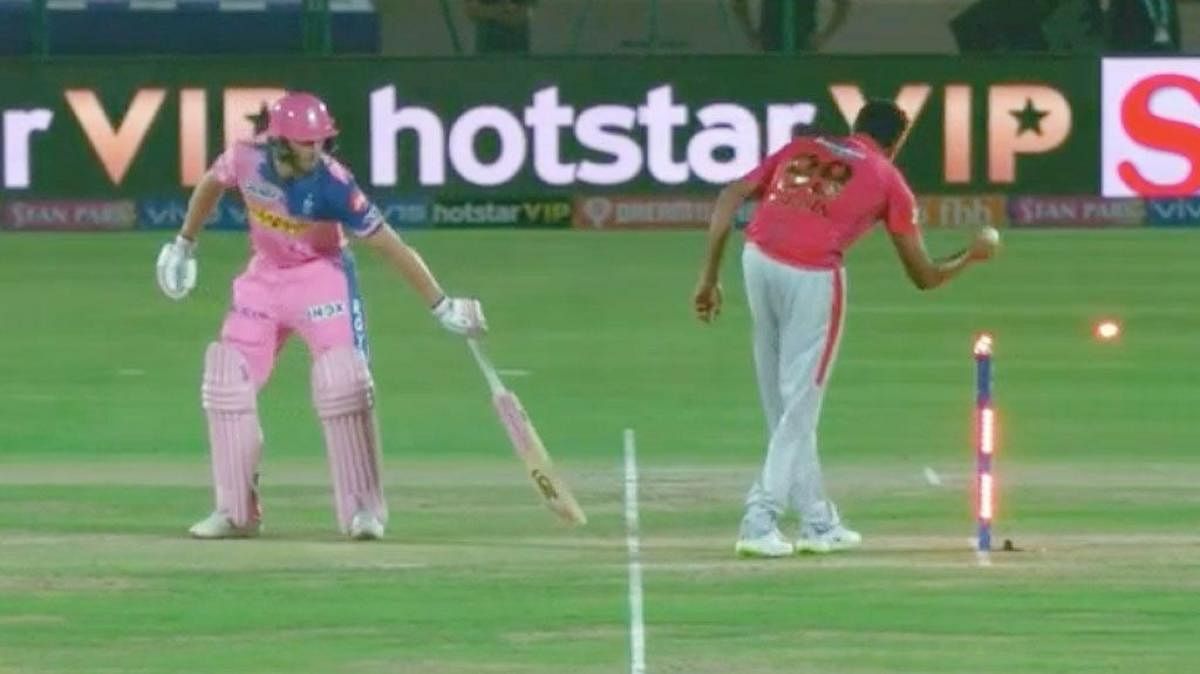
It's been over three days since Kings XI Punjab skipper R Ashwin 'mankaded' Jos Buttler of Rajasthan Royals and the controversy refuses to die down. While former players and fans are divided in their opinion, the Marylebone Cricket Club, the custodians of cricket laws, made a U-turn after initially backing the off-spinner's act, claiming it was against the 'spirit of the game.' Though running out a non-striker leaving the crease before the ball is delivered is a legitimate form of dismissal, it has always divided the cricketing world.
Why has 'mankading' always polarised opinions?
From the first such incident effected during India's tour of Australia in 1947-48 by the late all-rounder Vinoo Mankad, after whom the dismissal has come to be known as, to the latest one by Ashwin, mankading has never gained acceptance as it's deemed against the spirit of the game. While earlier it received little backing from the cricketing world despite the laws permitting it, later it gained acceptance with a caveat that a non-striker be warned once before actually running him out.
Is the bowler expected to warn the non-striker before effecting a run-out?
The likes of Michael Vaughan and Rahul Dravid say they would like the bowler to caution the batsman once before dismissing him if he errs again. But this is more a self-imposed convention than anything to do with the law. The law doesn't mandate the bowler to warn the advancing non-striker before running him out. After the controversy broke out following Buttler's run-out, MCC, while backing Ashwin's act, also made it clear there was no need for the bowler to warn the batsman.
Just a day after backing Ashwin, why is MCC saying Ashwin's run-out of Buttler is against the spirit of the game?
The MCC, which had made the 'Mankad' law more in favour of the bowler by bringing in modifications in 2017, has left room for subjective interpretation by also inserting a clause which says, "the run out of the non-striker can be attempted to the instant at which the bowler would be expected to deliver the ball." The critics of Ashwin, which now includes MCC, are clinging on to this point. They believe Ashwin stopped at the point of delivery, waited for Buttler to back up and then took the bails off. MCC manager of the Laws, Fraser Stewart, told the British media on Wednesday, "having extensively reviewed the incident again and after further reflection, we don't think it was within the spirit of the game. We believe the pause was too long between the time Ashwin reached the crease and the moment it was reasonable to expect the ball would be delivered. When Buttler could have reasonably expected the ball to be delivered, he was in his ground."
What then to conclude from MCC's latest observation?
Despite this "point of delivery" stipulation, MCC also observes that if the non-striker wants to avoid the risk of getting run-out, he should stay in his ground till the ball is released. So, it doesn't matter whether Ashwin paused or not, the onus is on the batsman. Moreover, the decision was referred to the TV umpire, in this case, Bruce Oxenford who is an ICC Elite panel official having officiated in 55 Tests, 90 ODIs and 20 T20Is. Surely he knows a thing or two about MCC Laws. And once the decision is left to the third umpire, it's his call. If he thought there was something not right about the dismissal, he would have surely taken a different call.
What is MCC and why does it make cricket laws when there is the International Cricket Council?
MCC was and still is a private club which used to govern cricket. To receive government funding, it founded Imperial Cricket Conference which later became International Cricket Conference before settling for its current name International Cricket Council. ICC is still responsible for drawing up playing conditions via its Cricket Committee but Laws are framed by MCC because they are World rights holders of them. MCC, however, works closely with ICC in framing the Laws.